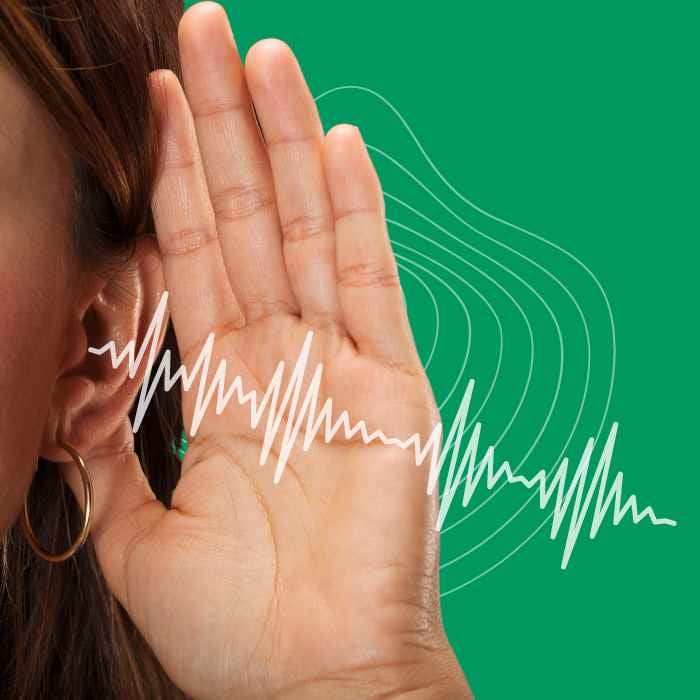Key Takeaways:
- Tinnitus is a common phenomenon that millions of Americans experience, commonly described as ringing, buzzing, or humming, but for some it also presents as music.
- Musical ear syndrome may be more common among cochlear implant recipients, according to research studies.
- If you are perceiving music, it may not be a sign of anything worrisome, but you should see a medical provider to rule out possible contributing causes.

Have you or someone you know experienced hearing music when there isn't any playing? This phenomenon is known as Musical Ear Syndrome (aka, MES) or auditory hallucinations, and it affects a subset of patients with tinnitus.
As an audiologist, I often work with patients who experience tinnitus, which can sound different and sometimes resembles music. For example, some patients report hearing instrumental music or childhood songs.
While MES is often harmless, it can indicate an underlying health issue. This blog post will explore the causes, treatments, and what to know about MES.
What are auditory hallucinations?
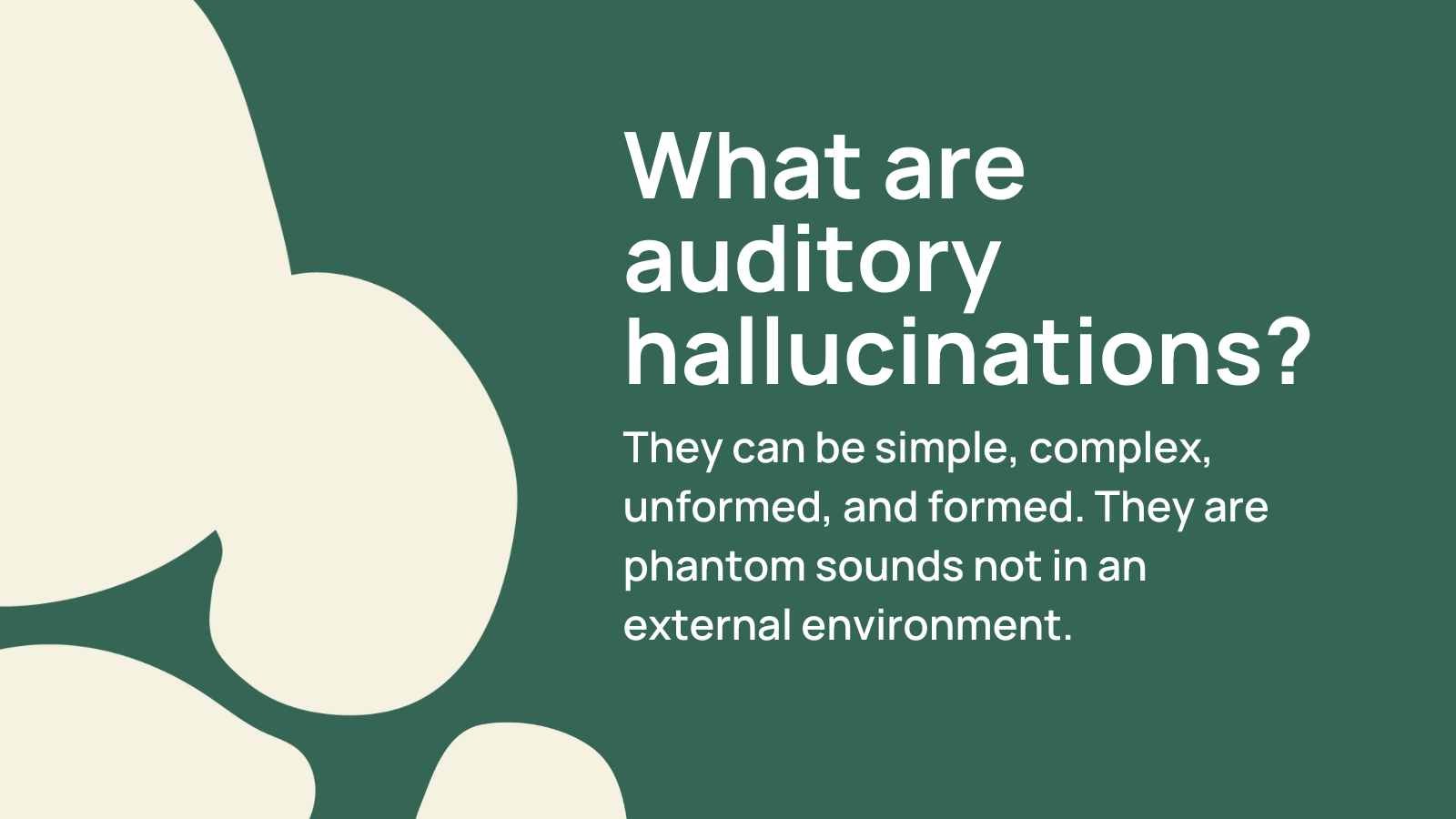
- Simple
- Complex
- Unformed
- Formed
MES is a phantom sound—such as music—not in the external environment. There are several different types of sounds that people may notice. These include simple, complex, clear, or ambiguous types of sound. For example, simple sounds are more commonly described as tinnitus perception, such as ringing, buzzing, humming, or similar sounds. Complex sounds include rhythm, singing, instruments, or a combination of different sounds. Sometimes these perceptions sound "fuzzy" or not distinctive in terms of instrumentation or voices. Others perceive music as more fully formed—for example, the sound of a piano, violin, or distinct lyrics.
While it is not a well-studied phenomenon, spontaneous auditory hallucinations are generally more common in older adults or those with more severe hearing loss. Unlike visual hallucinations, most of us can relate to having a song stuck in our heads.
However, this "earworm" phenomenon is different from musical ear syndrome. MES is when a person hears the sound as if it is in the same room and doesn't sound like it's coming from their head. Instead, it could sound like a complete song (often hymns, patriotic music, or holiday songs), snippets of an unknown melody, or other type of music. While auditory hallucinations can sound like any music, patients most commonly describe instrumental music, simple melodies, or songs people remember from early life memories.
What causes MES?
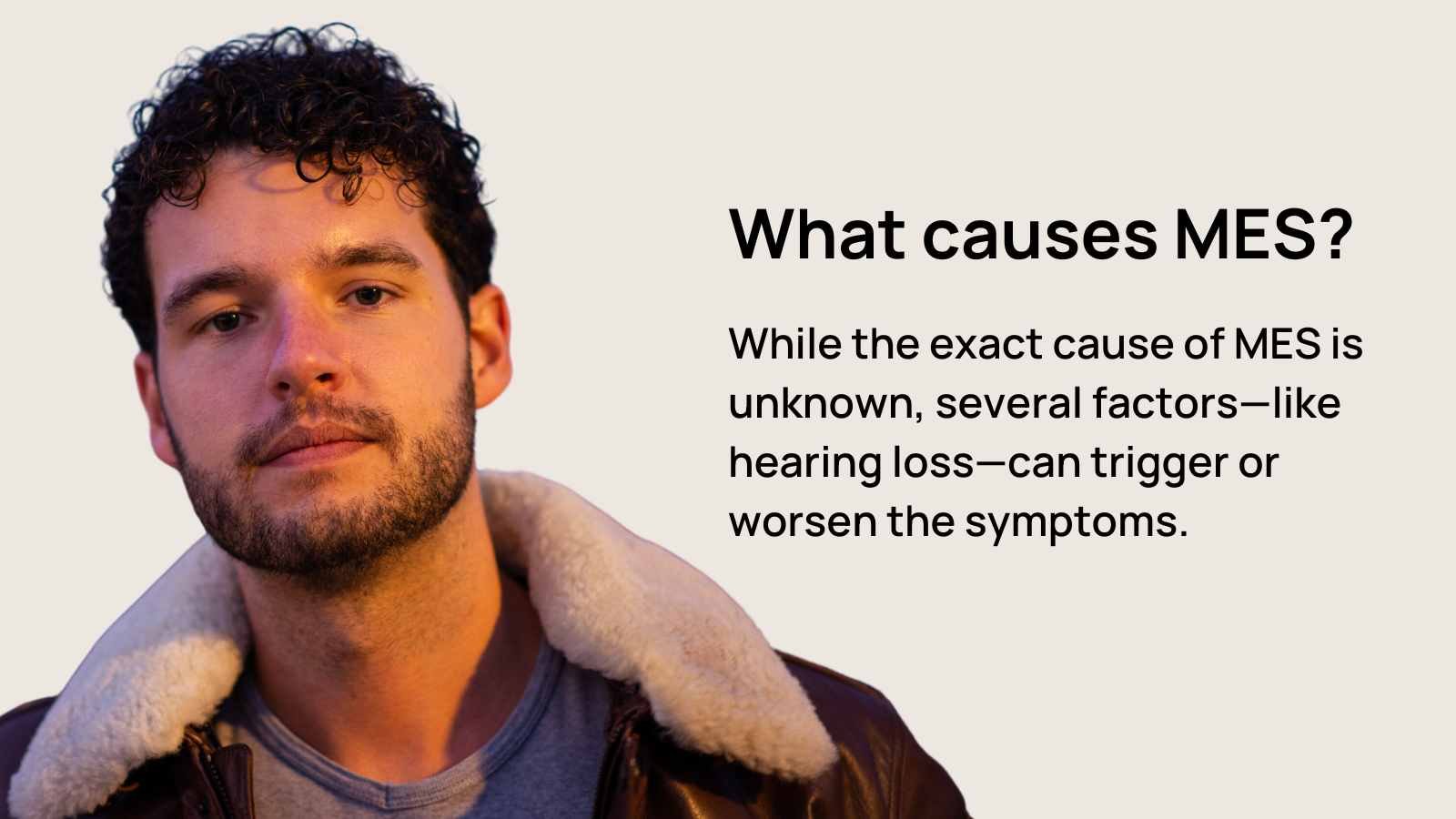
While the exact cause of MES is unknown, several factors could trigger or worsen the symptoms. For instance, hearing loss causes the brain to perceive a lack of sound and auditory stimulation. The brain craves auditory stimulation, and when there is a lack of stimulation, the brain may generate sound to fill this void. Most people can commonly perceive sounds like ringing, buzzing, humming, or other sounds. But, a subset of tinnitus includes the perception of music.
From my experience, some patients with more severe hearing loss or those with cochlear implants have reported hearing music sometimes after removing their devices. In some cases, it can be associated with cognitive decline, some medications, depression, anxiety, or traumatic brain injury. This can happen due to hearing loss, long-term isolation, or noise exposure. Other potential causes include head injuries, use of specific medications, stroke, and tumors.
How common is musical ear syndrome?
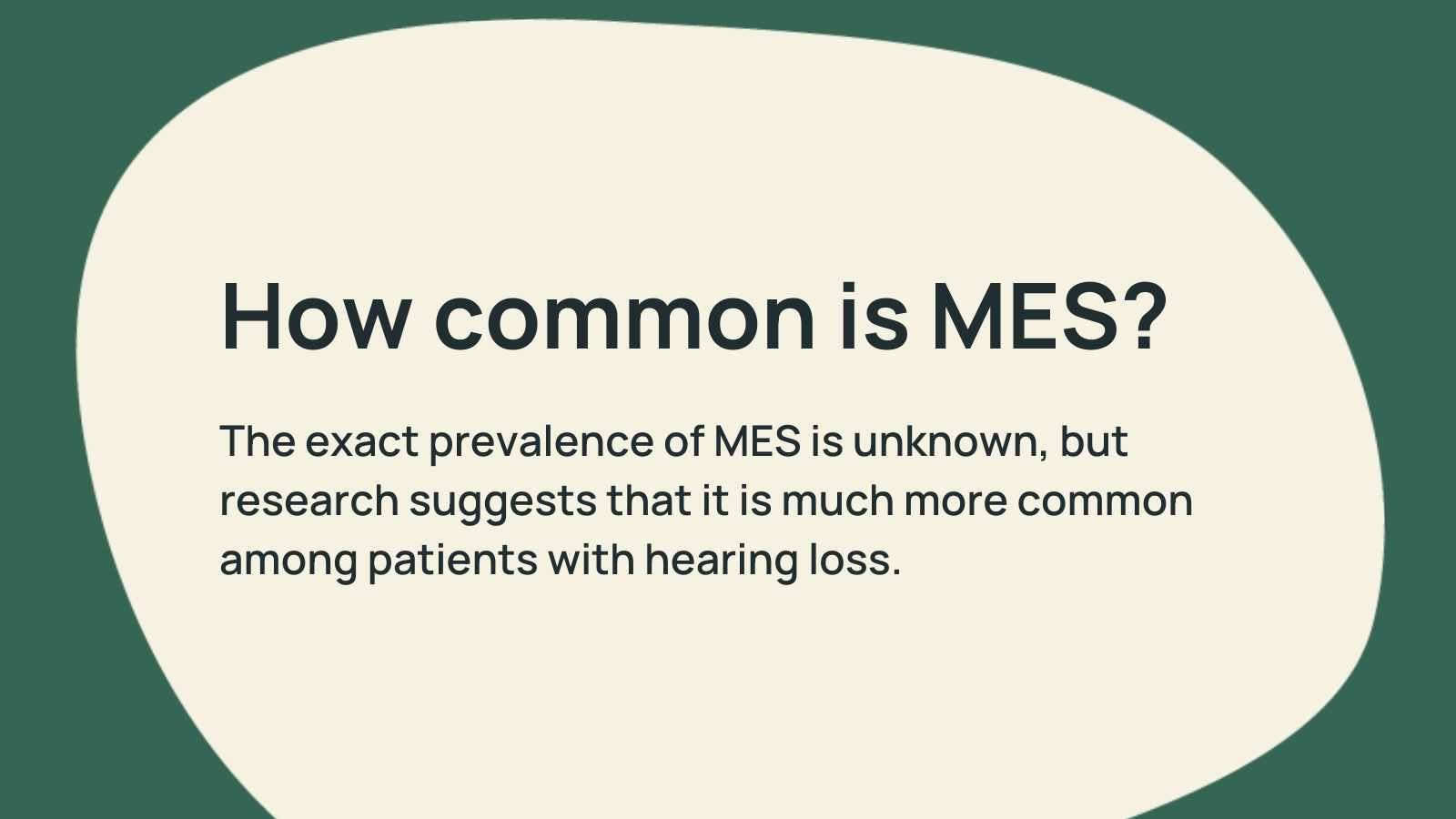
The exact prevalence of MES is unknown, but research suggests that it is much more common among patients with hearing loss. For example, one study suggests among over 3000 psychiatric patients estimated that 0.16% experience auditory hallucinations. However, musical ear syndrome is much more common among cochlear implant patients, with one study suggesting that 33% experience this phenomenon. The exact prevalence is difficult to pinpoint, as patients do not always disclose their symptoms. In addition, when disclosing their symptoms, some feel a stigma about a potential mental health condition.
Should I be concerned?

In most cases, hearing music or sounds is not a cause for serious concern. It is essential to note that musical ear syndrome is not necessarily a symptom of a mental health condition. One well-known example, the composer Robert Schumann likely experienced MES later in his life when he reported hearing music or choirs singing at night.
Just as tinnitus does not always require medical attention, musical ear syndrome does not always necessitate medical intervention. Though, patients who have depression, anxiety, or stress are more likely to experience MES, and it is advisable to seek medical attention to treat any of these underlying conditions. You should also seek medical attention immediately if you experience MES with other symptoms like dizziness, tinnitus, hearing loss, or vision problems.
What can I do to make them stop?
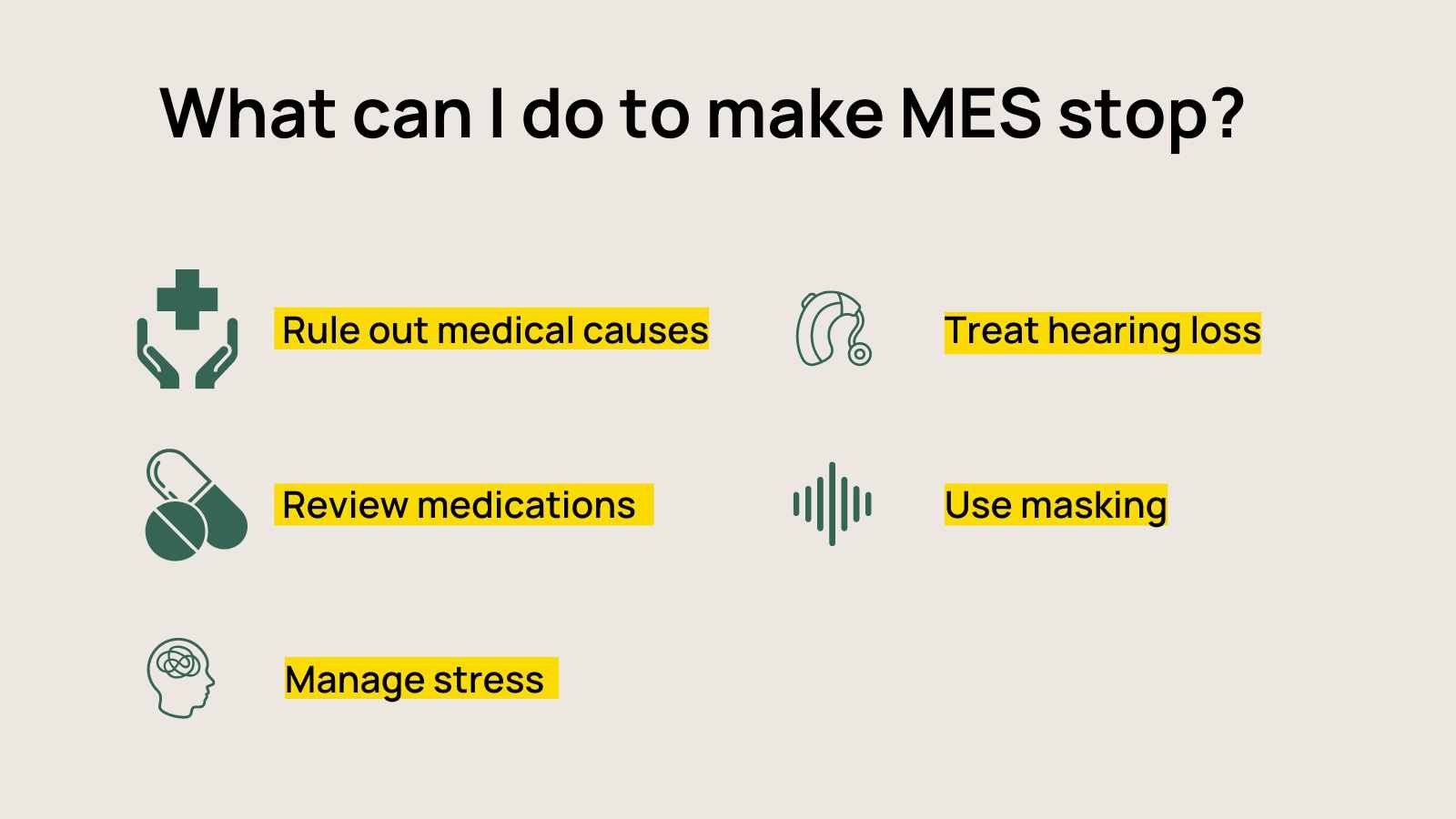
If you have MES, there is no cure, but there are several things you can do to mitigate the symptoms. For those who are troubled by its presence, here are several management strategies:
Rule Out Medical Causes
A physician can evaluate and rule out medical conditions or brain disorders. While rare, imaging can help rule this out and relieve anxiety about underlying pathology.
Review Medications
Certain medications can cause or worsen MES. Consult your physician about your current medications and any known side effects.
Treat Hearing Loss
If you have hearing loss, wearing amplification gives the brain the auditory stimulation it craves. Tinnitus patients often find that wearing hearing aids can help reduce or relieve their tinnitus. Patients with MES and hearing loss may also benefit from a reduced perception of phantom sounds.
Use Masking
One management method is to create soothing background noise. For example, consider white noise, nature sounds, or other background noise to help mask the sounds.
Manage Stress
If you're feeling anxious or stressed, consider relaxation techniques like yoga or meditation to calm your mind and reduce symptoms. For some patients, stress and anxiety contribute to these perceptions.
Conclusion
Musical Ear Syndrome is a perplexing and often overlooked condition that affects many individuals. There are currently not many studies on this condition, and research into its underlying causes is ongoing. MES is much more common among patients with hearing loss, but it can also be associated with other underlying conditions. Fortunately, there are management strategies to help those who find it bothersome. It is essential to consult a professional if you are experiencing persistent symptoms due to MES or auditory hallucinations.

